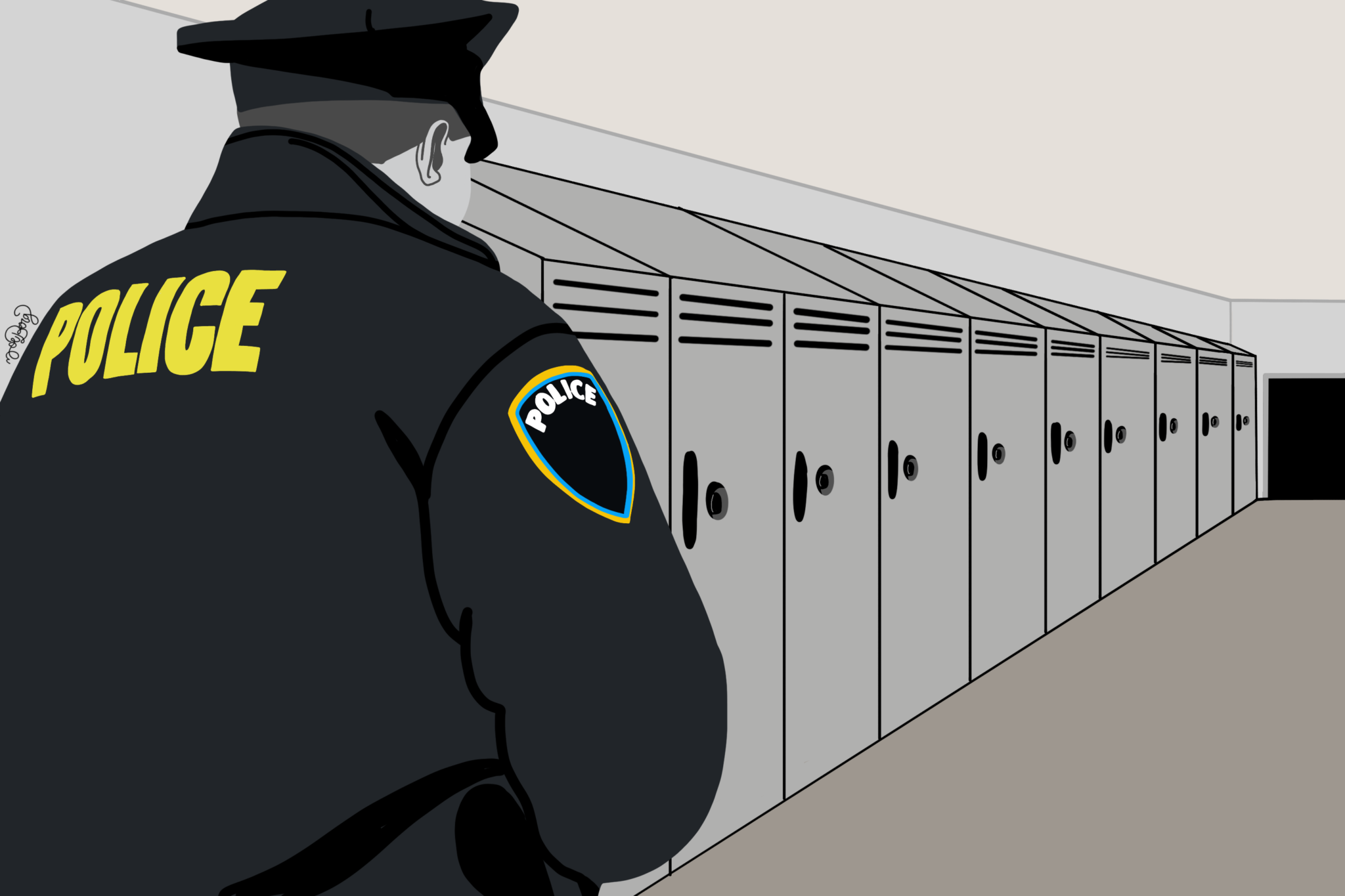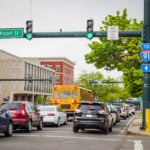
Zoe Berg, Photo Editor
After nearly a year-long debate over the fate of school resource officers, or SROs, in New Haven Public Schools, the Board of Education has accepted a recommendation that would keep this type of law enforcement official in schools while also investing in more psychologists and social workers.
In January, the NHPS School Security and Design Committee drafted a recommendation about SROs for the board. The New Haven Police Department describes school resource officers as uniformed police officers that work to prevent criminal activity on school campuses by engaging in conflict resolution. The committee proposed a number of reforms including an increase in funding for school psychologists, the prohibition of police cars being parked outside of schools and the implementation of regular meetings between school administrators and SROs. The seven board members present approved the recommendations unanimously on Monday. Now the recommendations are Superintendent Iline Tracey’s responsibility to implement.
“It’s a very challenging issue and people are very passionate about the issue,” New Haven Mayor Justin Elicker said at Monday evening’s meeting. “I think it’s difficult to come up with anything that’s going to make everyone happy, if not impossible.”
Elicker thanked board member Tamiko Jackson-McArthur for her work in crafting the compromise between anti-SRO activists and members of the community that did not support a complete elimination of the program. Last summer, after Jackson-McArthur and fellow board member Darnell Goldson proposed removing SROs entirely from district schools, former Wilbur Cross High School SRO Ricardo Rodriguez started a petition to “save the New Haven SRO program,” which has garnered over 900 signatures as of Tuesday evening. In the following months, the board tasked the School Security and Design Committee with drafting recommendations for the new SRO policies.
Board member Matt Wilcox echoed Elicker’s sentiment that the School Security and Design Committee has come up with a satisfactory solution. He added that while not all community members may be content with the final decision, the approved recommendations’ goal is to make SROs either “not be necessary or we will have a different relationship moving forward.”
The BOE’s approval of the SROs recommendation comes despite an increased push for reduction of school resource officers spurred by the Black Lives Matter protests last spring. In a youth-led Black Lives Matter protest last June, student activists advocated for the removal of police officers within schools.
Monday’s resolution would not call for a further reduction in the number of SROs. Last month, the New Haven Police Department reduced the number of school resource officers in Elm City from nine to three due to budget cuts. NHPD came to this decision after reassessing officer staffing in the context of NHPS’ hybrid learning model, under which less than two-thirds of district students have opted in to partial in-person instruction.
“Many students feel criminalized and overly monitored by [SROs],” Lihane Arouna, a senior at Cooperative Arts and Humanities High School and a student representative on the BOE said in a Citywide Youth Coalition rally in June.
At the same rally, Arouna said that police presence affected the mental wellbeing of students of color, contributing to the school-to-prison pipeline. The criminalization of students of color in schools, she argued, leads to an overexposure to the criminal justice system. Arouna was not present at Monday’s evening BOE meeting and did not vote on the SRO recommendation. The board’s other student representative, Anthony Fiore, a junior at High School in the Community, voted in favor of the resolution.
In 2019, Connecticut Voices for Children released a report, “Policing Connecticut’s Hallways: The Prevalence and Impact of School Resource Officers in Connecticut.” After analyzing data comparing schools with and without SROs through the state, the New Haven-based nonprofit found that SRO presence was correlated with an increase in arrests but no reduction in violence within schools.
“Within schools that have SROs, we do not find evidence that SROs are associated with better academic outcomes for students… They also do not appear to statistically contribute to a measurably safer school climate in most cases,” the report wrote. “However, they may contribute to more students experiencing discipline for minor offenses such as wearing a hat in school or similar school policy violations.”
The authors of the report Camara Stokes Hudson, Lauren Ruth and Wendy Waithe Simmons wrote in the executive summary that unlike security guards and administrators, SROs could arrest students, which can lead to trauma, not only for the students but also their families and other observers.
The report also found that Latinx students in the state are six times more likely to be referred to law enforcement in schools with SROs. In 2020, New Haven school administrators also reported that although Black students consist 18.6 percent of NHPS students, they made up 41 percent of suspensions in New Haven in the past five years.
The SRO program was established in 1994.
Christian Robles | christian.robles@yale.edu
Razel Suansing | razel.suansing@yale.edu










